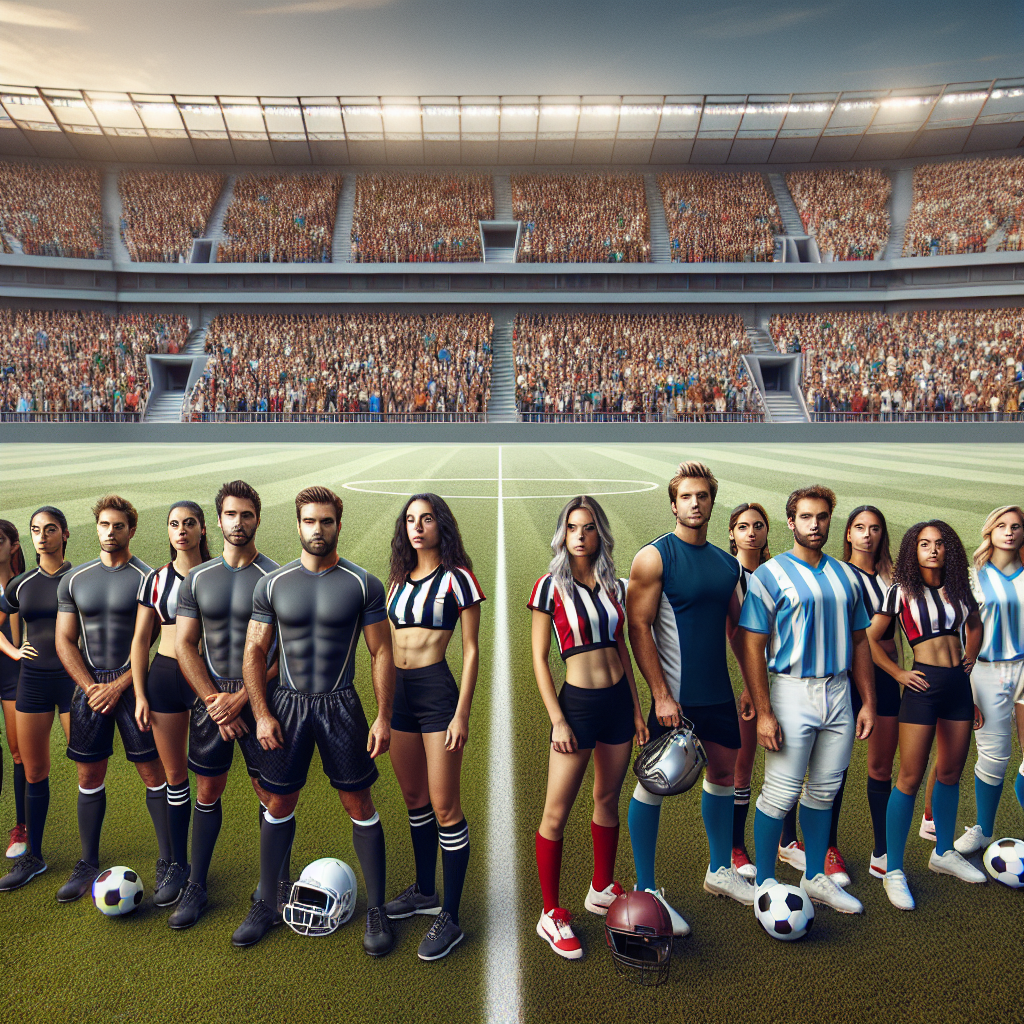
Breaking Barriers: Persistent Gender Gaps in Sport Revealed
The pursuit of gender equality in sports has encountered numerous challenges, despite significant progress in recent years. A new report from the EU-CoE ‘All In Plus: Promoting Greater Gender Equality in Sport’ project highlights both advances and persistent disparities in gender equality across European sport.
Key Findings of the Report
The ‘All In Plus’ project provides a comprehensive analysis of gender equality in six critical areas in sport:
- Leadership: Women are significantly underrepresented in decision-making roles. Only 12% of sports federations have a female President, and 29% have a female Vice-President or Board members. Despite 59% of sports organizations taking steps to increase women’s representation, disparities remain stark.
- Coaching: Women account for only 23% of registered coaches, with significant variations among countries. Malta (40%), Switzerland (39%), and Sweden (34%) stand out as leaders, while some jurisdictions employ no female coaches at all.
- Officiating: Women make up just 32% of sports officials, with particularly low numbers in Austria (8%). Just 47% of sports organizations have measures in place to increase female representation in officiating roles.
- Participation: Women and girls represent only 31% of sports federation members, with participation rates plummeting from youth to adulthood. Finland is leading in gender-balanced participation with a 50% rate.
- Preventing Gender-Based Violence: There has been progress with the percentage of sports organizations having written policies increasing from 25% in 2019 to 39% in 2023. Despite this, only 33% allocate funds for prevention and victim support mechanisms remain underdeveloped.
- Media Representation: Only 35% of sports organizations have taken steps to ensure gender-balanced media representation, with Austria (65%) and Spain (59%) leading. Less than 30% have gender-sensitive representation guidelines.
A Call to Action
The findings from the ‘All In Plus’ project serve as a clarion call for urgent and coordinated action across the sports sector. Georges Mischo, Minister in charge of Sport in Luxembourg, emphasized that achieving gender equality in sport is not just a goal but a fundamental right that requires relentless effort.
Mischo stated, “The findings of the All In Plus project highlight the significant gaps that still need to be addressed. This project is crucial in showcasing persistent disparities and providing clear recommendations. It’s imperative to take these findings seriously and implement the necessary changes to ensure everyone, regardless of gender, has equal opportunities in sports.”
Continued Commitment from Stakeholders
Normunds Popēns, Deputy Director-General of Education, Youth, Sport, and Culture at the European Commission, acknowledged the complexity of achieving gender equality in sport, which requires ongoing commitment, collaboration, and innovation. He urged stakeholders to transform insights and recommendations into concrete, lasting changes.
According to Matthias Kloth, Head of the Digital Governance and Sport Department at the Council of Europe, the project’s findings serve as a wake-up call. While incremental progress is evident, the acceleration of efforts is necessary to ensure gender equality is more than just an ambition but a reality.
Steps for Progress
The report underscores several key actions needed to achieve gender equality in sport:
- Policy Implementation: Governments, sports organizations, and stakeholders must adopt and enforce policies guaranteeing equal opportunities for all genders in sport.
- Financial Investment: Significant investment is required to support gender equality initiatives, particularly in areas of leadership, participative sports, and media representation.
- Coordinated Efforts: Collaboration among various entities is essential to address and overcome existing gender-based barriers in sports.
The Road Ahead
The quest for gender equality in sports is at a critical junction, demanding urgent and sustained action. The EU-CoE project has provided a roadmap, but it requires collective commitment from all stakeholders to turn this vision into a reality.
By addressing the barriers and implementing suggested recommendations, the sports community can work towards a future where gender equality is not only celebrated but fully realized in every aspect of sport, from grassroots participation to leadership roles.
Conclusion
Gender equality in sports remains a multifaceted issue. The latest findings from the ‘All In Plus’ project reveal critical insights and outline a path for transformative action. It is imperative that the sports sector embraces these recommendations and strives to break down the persistent barriers that hinder gender equality, ensuring a future where everyone can thrive in sports, regardless of gender.
Source: https://www.coe.int/en/web/portal/-/breaking-barriers-persistent-gender-gaps-in-sport-revealed

